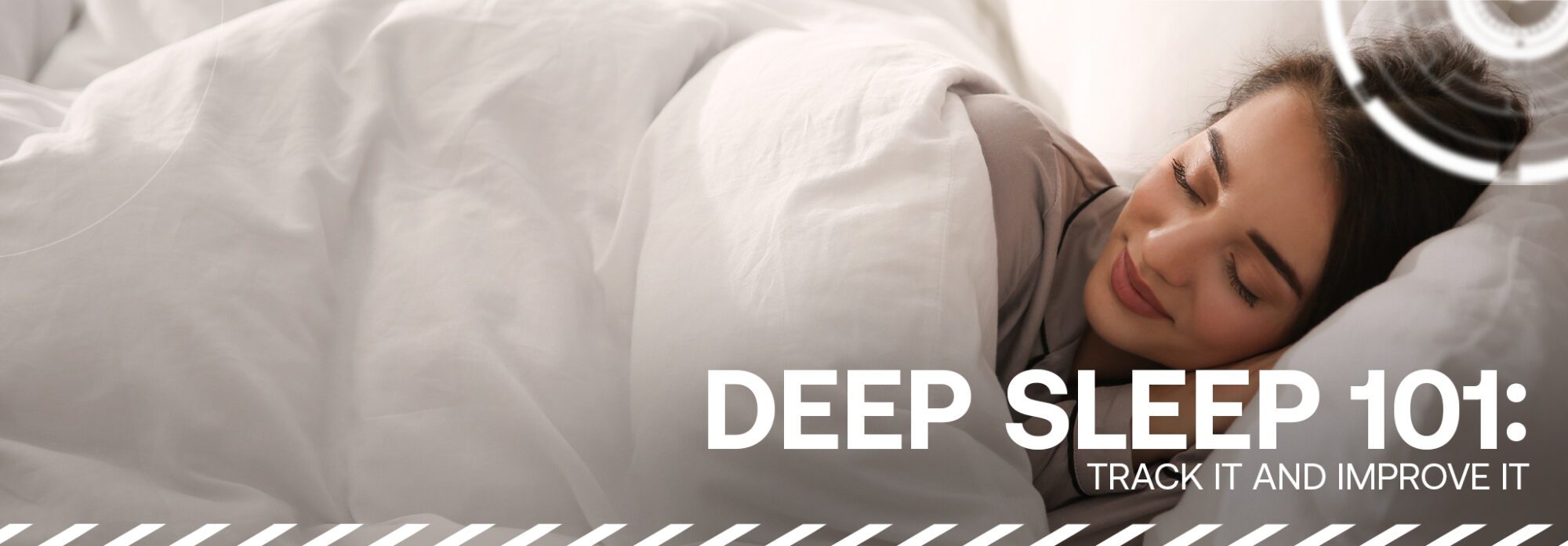
Deep Sleep 101: Track It and Improve It
What Is Deep Sleep (and Why Should You Care)?
Deep sleep, also known as slow-wave sleep or NREM Stage 3, is the heavy-duty restoration phase of your sleep cycle. It’s when your body goes into full-on repair mode—muscles rebuild, tissues grow, your immune system gets stronger, and your brain cleans out waste (literally). It’s also when growth hormone is released, helping your body recover from the daily grind.
During deep sleep, your brain produces slow, high-amplitude delta waves, your heart rate and breathing slow to their lowest rates, and you become pretty hard to wake up. This is the phase that leaves you feeling refreshed and recharged when you roll out of bed.
How Much Deep Sleep Do You Actually Need?
It varies depending on your age, but here’s a quick cheat sheet:
- Adults (18-60 years): Aim for about 16% to 20% of your total sleep in deep sleep.
- Teens: Closer to 20%-25% as their bodies are still growing and need extra recovery time.
- Older adults: Deep sleep naturally decreases with age, which is why you might hear your parents or grandparents say they wake up more often at night.
Since most adults need 7-9 hours of sleep per night, you’re looking at about 1.5 to 2 hours of deep sleep as a healthy target.
How Can You Calculate Deep Sleep?
Unless you’re wired up in a sleep lab, most of us lean on wearable tech to estimate how much deep sleep we’re getting. Wearables track things like heart rate variability, body movement, and sometimes even brainwave activity through advanced sensors. While no wearable is perfect, they can give you a strong baseline.
Here’s how it works:
- Your sleep cycle typically lasts about 90 to 120 minutes, and you’ll go through 4 to 6 cycles a night.
- Deep sleep usually happens in the first two sleep cycles and diminishes as the night progresses.
- On most nights, deep sleep occurs in chunks during the first half of your sleep, then tapers off as REM sleep takes over closer to morning.
How to Improve Deep Sleep Naturally
If you’re consistently short on deep sleep, don’t panic. There are simple ways to boost it:
1. Stick to a schedule
Go to bed and wake up at the same time every day—even on weekends. Your body loves routine.
2. Cut back on caffeine and alcohol
Both can mess with your sleep stages. Try limiting caffeine after 2 p.m., and moderate your alcohol intake (it fragments sleep and reduces deep sleep).
3. Get sunlight in the morning
Exposure to natural light helps set your internal clock, which can improve your sleep quality at night.
4. Stay active
Daily exercise helps increase deep sleep, but aim to wrap up workouts at least a few hours before bed.
5. Wind down before bed
A warm bath, meditation, or light stretching can ease your body into the slow-wave state.
6. Optimize your sleep environment
Cool, dark, and quiet is the golden trio. Blackout curtains and a supportive mattress can do wonders.
The Role of Wearables in Tracking Deep Sleep
This is where wearable tech shines. Devices like Pison Perform, powered by Pison Technology, are designed to provide deep insights into your sleep stages, including the elusive deep sleep window. Pison Perform takes it a step further by integrating neural biosignals to offer a more nuanced understanding of how your body is behaving throughout the night—beyond just heart rate and movement.
While many trackers give you the basics, Pison’s proprietary tech aims to provide clearer insights into how much deep sleep you’re actually getting, helping you make actionable changes.



